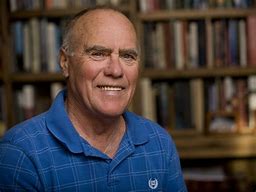“Let’s all become thinking/questioning citizens and not ordinary men. Let’s save our teetering democracy.” Roger Barbee
In my recent re-reading of Ordinary Men, Christopher R. Browning’s study of the Nazi’s final solution in Poland, I read a reference to T. W. Adorno and his work after WWII with colleagues in Germany. Browning’s book is a close examination of ordinary men mostly from Hamburg who were drafted into Reserve Police Battalion 101. The unit was sent to Poland to be executioners of Polish Jews, and Browning examines how such ordinary men as teachers, lawyers, and common workers could become active participants in the Holocaust. Thus, he refers to Adorno’s research to offer some explanation as to how ordinary men became killers for Hitler. Adorno and his colleagues screened for a “authoritarian personality” that was examined for by the so-called F-scale. The scale, as quoted by Browning, list the following characteristics for the “authoritarian personality:”
- Rigid adherence to conventional values
- Submissiveness to authority figures
- Aggressiveness toward out-groups[sic]
- Opposition to introspection, reflection, and creativity
- A tendency to superstition and stereotyping
- Preoccupation with power and “toughness’
- Destructiveness and cynicism
- Projectivity (the disposition to believe that wild and dangerous things happen in the world)
- An exaggerated concern with sexuality
Not a historian or sociologist, I am, like many Americas, concerned for our democracy. Through my layman’s eyes I see frightening parallels to America today and authoritarian regimes of the past and present—look no more than Victor Orban speaking recently at the CPAC convention. My concern for our country, even worry for our democracy, is one factor that drove me to re-read Ordinary Men, which I had last read at its publication. While I found that I had remembered the premise of Browning’s study, I found forgotten gems like Adorno’s F-scale.
While the dependability of the F-scale can and is debated, I found it of interest because I see some of the 9 listed characteristics as markers for some folks in America today. For instance, re-read number 4. It seems to me that our country is too full of people who only read or listen to or watch the information that re-enforces what they already know or believe. I see too many folks in our country as being too quick to believe only what they want to and will not take the time or energy to examine what they read, see, or hear.
A small book on my reference shelf is titled Study is Hard Work, written by William Armstrong in 1956. While a bit of the book is dated, its title and premise still holds: To seriously study anything is hard work. Yet I fear that much of our modern world like the Internet and our frequently lazy educational system (multiple-guess questions that a machine will grade) have contributed to our cultural propensity to be like number 4. So many of us have become such lazy citizens that we now believe in the popular advertisements that begin with such words as, “Get what you deserve….” Lazy citizenship and thinking that we deserve anything not worked for and earned is the type of thinking that certainly leads us into number 8 above.
The adage, There are three sides to every story-my side, your side, and the truth- should be thought of every time we read, see, or hear information from an elected official or someone running for an elected office. One does not need to become cynical but being suspect of information received will help us all to be better citizens. To question information will either cause it to be dismissed or or make it stronger. Let’s all become thinking/questioning citizens and not ordinary men. Let’s save our teetering democracy.
Roger Barbee

